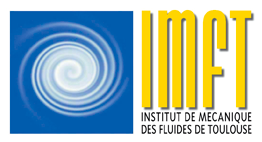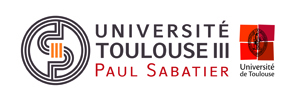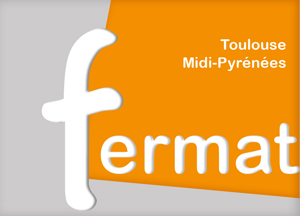Flow and transport in complex porous media : Particle Methods
Soutenance de thèse Hamza Oukili
Mercredi 10 juillet – Salle Castex Rdc
Abstract :
« Particle methods have been extensively used for modeling transport problems in porous soils, aquifers, and reservoirs. They reduce or avoid some of the problems of Eulerian methods, e.g. instabilities, excessive artificial diffusion, mass balance, and/or oscillations that could lead to negative concentrations. This thesis develops a new class of gridless Lagrangian particle methods for modeling flow and transport phenomena in complex porous media with heterogeneities and discontinuities. Firstly, stochastic processes are reviewed, in relation to particle positions X(t) and to the corresponding macroscopic Advection-Diffusion Equation (ADE). This review leads to the conditions required for the Probability Density Function (PDF) of X(t) to satisfy the Fokker-Planck equation (and the ADE). However, one of these conditions is the differentiability of transport coefficients : therefore, discontinuities are difficult to treat, particularly discontinuous diffusion D(x) and porosity q(x). In the literature on particle Random Walks, the methods used to handle discontinuous diffusion required excessively small time steps. These restrictions on the time step lead to inefficient algorithms. In this study, we propose a novel approach without restrictions on time step size. The novel RWPT (Random Walk Particle Tracking) algorithms proposed here are discrete in time and continuous in space (gridless). They are based on an adaptive “Stop&Go” time-stepping, combined with partial reflection/refraction schemes, and extended with three new concepts : negative mass particles ; adaptive mass particles ; and “homing” particles. To test the new Stop&Go RWPT schemes in infinite domains, we develop analytical and semi-analytical solutions for diffusion in the presence of multiple interfaces (discontinuous multi-layered medium) in infinite domains. The results show that the proposed Stop&Go RWPT schemes (with adaptive, negative, or homing particles) fit extremely well the semi-analytical solutions, even for very high contrasts for transport properties even in the neighborhood of the interfaces. The schemes provide a correct diffusive solution in only a few macro-steps (macroscopic time steps), with a precision that depends only on the number of particles, and not on the macro-step. The algorithms are then, extended from infinite to semi-infinite and finite domains. Dirichlet conditions are particularly difficult to implement in particle methods. Thus, in this thesis we propose different methods on how to implement Dirichlet boundary conditions with the “discontinuous” RWPT algorithm. This study proposes an algorithm to solve diffusion equations semi-analytically in heterogeneous semi-infinite and finite domains with Dirichlet boundary conditions. The RWPT Dirichlet methods are then checked analytically and verified for various configurations. Finally, the RWPT method is applied for studying diffusion at different scales in 2D composite media (grain/pore systems). A zero-flux condition is assumed locally at the grain/pore interfaces. At the macro-scale, diffusion occurs in an equivalent effective homogeneous medium with macroscopic parameters (porosity and effective diffusion coefficients) obtained from the temporal evolution of second order moments. The RWPT algorithm is then applied to more complex geometries of grains and pores. Different configurations or structures at the micro-scale level will be chosen in order to obtain composite isotropic media at the macro-scale level with different porosities. Then, by choosing elongated micro-structures, anisotropy effects emerge at the macroscopic level. Effective macro-scale properties (porosities, effective diffusion tensors, tortuosities) are calculated using the second order moment. The different methods proposed in this thesis can be used for different problems, since each has its drawbacks and advantages. The schemes proposed seem promising with a view to extensions towards more complex 3D geometries. »
Jury :
- M. Philippe Ackerer, Rapporteur
- M. Amvrossios Bagtzoglou, Rapporteur
- M. Marco Dentz, Rapporteur
- M. Eric Climent, Examinateur
- Mme Enrica Masi, Examinatrice
- M. Benoit Noetinger, Examinateur
- M. Rachid Ababou, Directeur de thèse
- M. Gérald Debenest, Co-directeur de thèse





